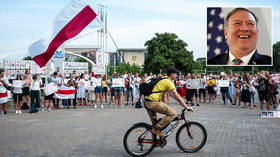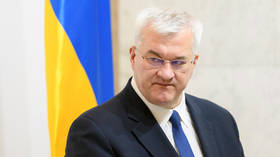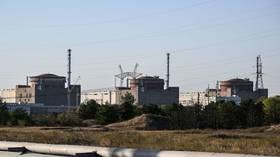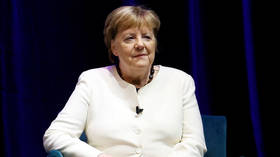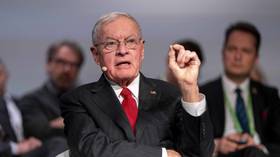Lukashenko may well survive this crisis, but how can Belarus avoid another one in the future?
The meeting in Sochi between Belarusian President Alexander Lukashenko and Russian President Vladimir Putin may have just decided the fate of Belarus, ensuring Lukashenko is staying. But it has not canceled the need for change.
During the Monday meeting, which came as Belarus is wracked by continual protests following last month’s contested presidential election, the two leaders reportedly discussed joint projects in the trade-economic, energy and cultural-humanitarian spheres, as well as the integration processes within the Russia-Belarus Union State, and on top of this, Lukashenko secured a $1.5 billion loan from Russia, which is an important sign that Lukashenko has regained his footing.
Leaning on Russia & the Union State
The Union State discussion is crucial, as it has long been one of the main political pushes from the Russian side. Since its establishment in 1999, the Union has largely existed on paper but not in reality with many of the presupposed details – a common parliament, government, customs, currency, judicial and tax systems – having never been hashed out. From Lukashenko’s perspective, this would cause Belarus to give up much of its sovereignty, and given the vast incongruence in size and power between the countries, he would not be entirely wrong.
Much of the Belarusian leader’s flirt with the West was an attempt to maintain a balancing act and stake out Belarusian sovereignty. However, engagement with the West has unfortunately yielded the exact opposite results, with many of his Western neighbors turning against him. For example, Lithuania recognized his challenger, Svetlana Tikhanovskaya, as the “legitimate President of Belarus” and the United States has also stepped in to back her and the organized opposition.
With mounting protests and betrayal from the West, we can expect to see soon exactly what concessions Lukashenko had to make to earn Russia’s support. If indeed they agreed on deepening the Union State, or perhaps even a desirable cooperation on energy, commerce or security, then Lukashenko will probably remain firmly in place with no serious challenge.
The West isn’t too keen
On the other hand, prior to the meeting, Tikhanovskaya, who is in self-imposed exile in Lithuania, said that “whatever he accepts and whatever he agrees on during the meeting in Sochi – it will not have legal force, as all agreements signed with illegitimate Lukashenko will be reviewed by the new Belarusian government.”
This may be interpreted as the direct words of the United States and European Union in reaction to both Russia and Belarus. While it might seem quite aggressive, the common EU position on Belarus, which is probably the most important, is much less sharp than one might expect, but no doubt the Lukashenko-Putin talks will be the impetus for some type of escalation, however mild it may be.
On Tuesday, Josep Borrell, the EU’s high representative for foreign affairs and security policy, told MEPs that Lukashenko’s presidency is “illegitimate” as the EU does not recognize the results of the last election, though he did not declare support for Tikhanovskaya and instead reiterated calls for a new election. He also said that the EU is using “all the tools that we have” to deal with the situation.
Last Thursday, Tikhanovskaya was vetoed out of a Visegrad Four (V4) summit, comprising Hungary, the Czech Republic, Slovakia, and Poland, by Czech Prime Minister Andrej Babis (though he claims Hungary and Slovakia also voted to exclude her). In doing so, Babis called her invitation by Poland a “hasty step”out of line with the common EU position.
It shows that the EU position itself, which will be fully presented at the EU leaders summit on September 24-25, is not as hawkish as one might believe by observing the actions of some member states who are probably in the minority. The possibility of a full confrontation between NATO and Russia, which everyone fears, is extremely unlikely.
It cannot be fully known what exactly will happen next until the EU summit concludes, but one can bet that Lukashenko is probably not going anywhere, at least not right now, and his constitutional reform proposal backed by Russia will be of extreme importance. Assuming he makes good on this suggestion, how he addresses the current problems in the country now will be consequential in how that referendum plays out and if the current Belarusian state will survive past it.
Also on rt.com Belarusian opposition leader Tikhanovskaya is cozying up to Washington, a serious strategic blunderSoviet vs. ‘New Belarus’ mindset divide
The division in Belarusian society that Lukashenko is faced with addressing is not one centered around the serious material inequality that plagues many other countries, which is extremely corrosive to the functioning of a healthy society, but rather a demographic division. The main feature of this is age, where the median age puts half the population at having been born well during the Soviet era and the other half having come of age during the establishment of Belarus as we know it today.
In trying to maintain a system similar to the Soviet Union, which was indeed his goal from the start and something that was and is popular in the country, Lukashenko had to address the fact that other countries formerly in the Eastern Bloc were changing in a different way. He had to demonstrate to the new generation that the Belarusian system as it exists is superior, despite the flashy new things brought about from the penetration of American capitalism into the former Eastern Bloc.
When he came to power as a populist anti-corruption bulldog, Lukashenko snuffed out the rampant bandit capitalism that was plundering Belarus and brought enviable prosperity well until the end of the 2000s. Had he left it there and led a new generation into leadership, things now would probably have been much different and he’d have statues across the country much like Soviet leader Vladimir Lenin still does.
The needed change
He can still reverse course as he regains his footing by making the case to younger people that their country works for them. For those leaving the country to find better and more secure opportunities, Belarus under Lukashenko must create those opportunities, and for those taking to the streets to protest, Lukashenko must create significant political openings to vent their concerns.
There exists opportunity in Belarus in a variety of economic sectors. For example, Minsk is something like the Silicon Valley of Eastern Europe, with the tech sector generating a significant portion of the country’s revenue and gross domestic product (GDP), and it should come as no surprise that much of the country’s top talent has left to the real Silicon Valley and other top destinations to find more agreeable opportunities.
Trade in services is going to be the most important driver of economic growth well into the future. The coronavirus has accelerated the pace at which tech services are becoming part of our daily lives, with services such as telemedicine, distance learning and e-commerce becoming more pivotal. The government should cooperate with its tech sphere and fuel its development, playing on one of its core strengths – its extremely talented and well-educated workforce.
Creating wage growth overnight that would make Belarus comparable to its EU neighbors is impossible, but there are things that Lukashenko can do to help right now.
Also on rt.com Is Belarus a color revolution? The real problem is that ANY protest these days may beDiversify economy, improve labor laws
First, easing business regulations – not an extended hand to predatory multinational corporations – could prove beneficial in fueling economic growth; diversifying the Belarusian economy in terms of its products and trading partners; and helping to increase tax revenue by legalizing previously illegal small businesses that operate in the country.
The country slipped 12 spots in the World Bank’s 2020 ease of doing business ranking, and while the Economy Ministry claims that it is only a relative slip based on other countries’ improvements, this actually reflects the point of why Belarus needs to work harder to establish itself as an attractive business destination. Belarus now lags behind almost all partners of the Eurasian Economic Union (EAEU).
Second, pushing forward on much needed labor reforms to create security. Belarus has strong labor laws in many respects with very generous benefits, and some 2020 revisions to the Belarusian labor code strengthened it even more, including the recognition of freelancers. One detail which sticks out like a sore thumb is Belarusian labor contracts which were valid with a minimum term of one year and a maximum of five. However, the 2020 reform granted a minimum three year extension for diligent employees.
Until this change, Belarusians were mostly given continual one-year extensions that created insecurity, indicating that a significant share of the country was and still is at risk of falling into poverty due to job loss. Upping this to three years is still not secure enough and contracts must be allowed to be properly negotiated by employees and employers.
In this same vein, the state must enter into dialogue with independent labor unions and respect their rights guaranteed by legislation. Allowing workers in various sectors to unionize independently can help reduce the growing wage disparity between the country’s various sectors.
While losing skilled labor is a problem for Belarus, losing so-called unskilled labor is also hurting the country significantly as many of these lower-wage workers leave to the EU as migrant workers. This has led to a loss in tax revenue, lower retirement payments and GDP loss, and is directly influenced by stagnating wages within Belarus coupled with no discernible increase in standard of living.
There is also a serious geographical disparity in Belarus between those in rural areas and those in cities. This includes disparities in both wages and access to public goods, including transportation links and basic infrastructure. The 2020 budget addressed this with significantly expanded spending on engineering and transport infrastructure, and certainly now is the time to enthusiastically pursue these projects. It should be noted that this geographical disparity is not a uniquely Belarusian problem.
Also on rt.com Venezuela scenario at play? Lithuania recognizes exiled opposition figurehead Tikhanovskaya as ‘elected leader’ of BelarusRecognize internal opposition so it doesn’t drift to the West
In the political sphere, space must be made for those that dissent. While it’s true that the current opposition has been linked up to the West, including the United States and other hawkish countries, it was not an inevitability. If sufficient space exists internally within the political system for opposition, it can decouple this opposition from external forces.
Lukashenko himself inadvertently pushed the organized opposition into the hands of those that would listen (the West), and while this was a political win this time as it made his narrative of the opposition being Western infiltrators come full circle, the next time it could spell doom for the Belarusian state. In order to continue into longevity, the political system must include younger people as a core component and avoid the self-admitted mistakes of heavy-handedness that forces alienation and disengagement.
The constitutional referendum that Lukashenko promised could be the perfect opportunity to open up the political system and include a wider swath of society, not just serve as a way to buy time to stave off a possible foreign intervention. The fact that such a mechanism exists and he could see it through is also a positive sign, but it must also be met with releasing opposition-affiliated prisoners that are detained without formal charges.
As he well knows, a constitutional referendum would be a gamble that may inevitably lead to the collapse of Belarusian socialism. In order to maintain it, Lukashenko himself must lay a groundwork beforehand that legitimizes the current Belarusian state by addressing the very real grievances that exist.
There’s no reason he couldn’t succeed, as the state is properly consolidated and the technocrats that run the various ministries and government agencies are extraordinarily competent. Everything exists already for a stable Belarus, but as Lukashenko himself said, the system must work “without being tied to a personality, including Lukashenko.”
Think your friends would be interested? Share this story!
The statements, views and opinions expressed in this column are solely those of the author and do not necessarily represent those of RT.

